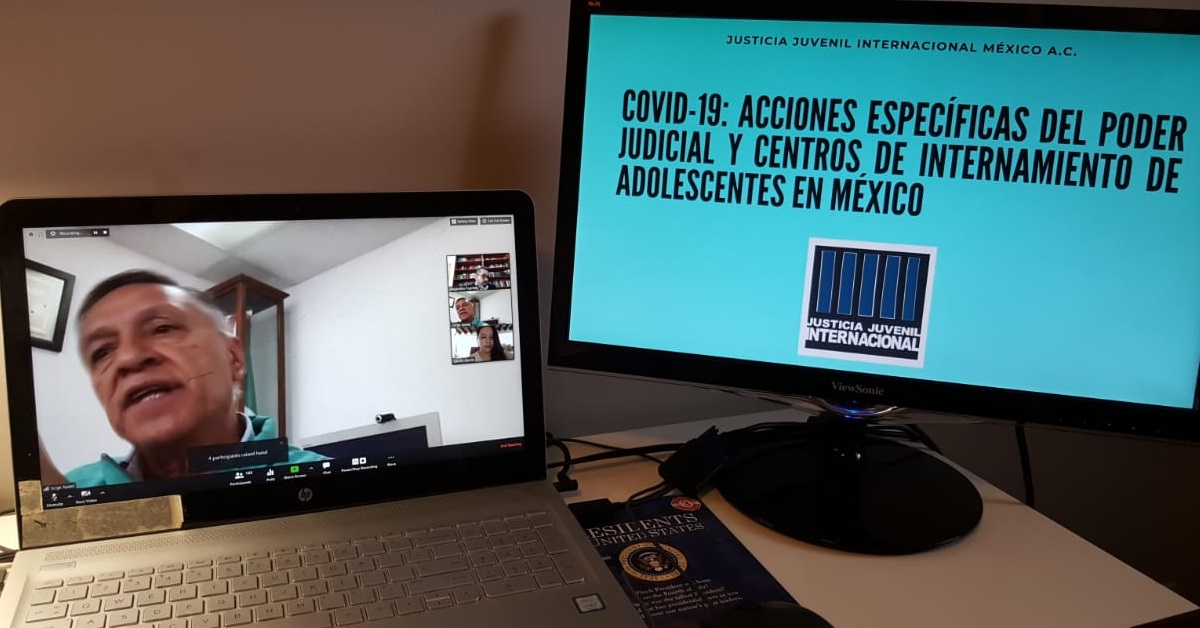It is not enough to allow minors in detention centers to go home, but rather to have the necessary tools to continue with their social reintegration process if necessary and that authorities make sure that the spread of the COVID-19 epidemic is controlled during their time of detention.
This was one of the topics discussed in the second webinar of Juvenile Justice Advocates International, entitled: “COVID-19: Specific actions of the judiciary and adolescent detention centers in Mexico”.
The measures that the States of the Republic are taking in the face of the global pandemic, which have unleashed urgent measures in various judicial areas related to juvenile detainees, were questioned as well as the actions taken to avoid mass contagion in detention centers with due adherence to human rights .
The Presiding Magistrate of the Court for Juvenile Offenders of the Judicial Power of the State of Durango, Alejandro Ramón Fuentes, one of the speakers of this digital activity, commented that to verify that the measures are complied with, there are Subcommittees on Justice for Adolescents belonging to the State System of Comprehensive Protection of the Rights of Girls, Boys and Adolescents (Sipinna), where the work carried out is also evaluated.
“I think we need to work to get a manual of good and bad practices, to promote better specialized justice for adolescents across the country. I think you can see good practices but also areas of opportunity in order to generate better justice, “he added.

For his part, the General Director of Specialized Care for Adolescents in CDMX, Jorge Guillermo Apaez, explained that in the event that a young inmate in an internment center tested positive for COVID-19, there is empathy to treat said hypothetical case and that in each of the city centers there is an established protocol, in which there is a daily review of adolescents in the morning and afternoon as well as a continuation of their activities with due “social distancing”.
“I believe that each State and each center should act upon its specific characteristics and its particular needs. We act from the start, from the filters to the care of our staff and the technical guides. We take preventive measures in a strict manner, all which tends to decrease risks. If we detect upon entry that a boy has COVID19 we have a designated space to treat him, but if he is already with us, then he remains under observation as well as anyone he has shared spaces with, and we do not permit contact with the rest of the population of the facility for at least 15 days ”, he asserted.
He also said that in case the adolescent’s health worsens, hospital care is established, but it will be avoided as much as possible, all in order to spread the contagion.
The event was moderated by the National Director of Projects of JJAI, Sarahi García, who assured that a crisis like the pandemic shows the weaknesses of the system and that the key will be in the observance and monitoring of the competent authorities to verify that the recommendations expressed are carried out.
It should be mentioned that this is our second Webinarof a series that we will be carrying out with experts in the area. For more information you can follow us on our social networks, or write to us at info@jjadvocates.org.

